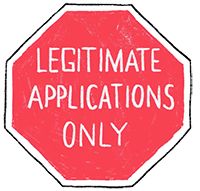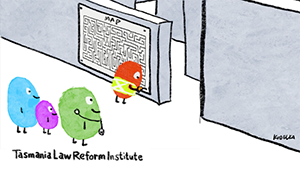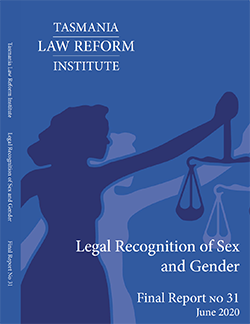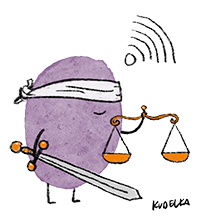Tasmania Law Reform Institute
Tasmanian sex & gender identity reforms cleared by state’s peak law reform body
The Tasmania Law Reform Institute (TLRI) Legal Recognition of Sex and Gender - (Final Report No. 31) (PDF 3.3MB) provides a comprehensive review of the legal implications of the Marriage and Gender Amendments Act 2019 and recommendations for further reform.

What is this Report About?
In 2019 Tasmania became the first state to allow its citizens (especially transgender/intersex/agender people) to obtain a birth certificate that accurately reflects their gender identity.
Given the novelty of the law the TLRI was directed by the Attorney General to consider the impact of the reforms on the state's system of law and justice.
What does the Marriage Gender Amendments Act 2019 do?
Tasmania's Marriage Gender Amendments Act 2019 aims protect the rights of gender diverse members of the community. It does this by
- Giving parents the choice about whether or not to include information about their child’s gender on their birth certificate
- Permitting people to apply to change their name and gender information on a birth certificate -- for people under 16, the application can be made by a parent or guardian
- Removing the requirement for a person who wants to change their gender to have surgery. Instead, they simply need to sign a statutory declaration confirming their gender.
Explainer 1: Sex, Gender & Birth Certificates
Why was the TLRI asked to review the new laws?
The Law Reform Institute was directed to inquire into and report on a range of concerns about the law that had been raised by stakeholders and members of the community. These included
- Birth certificates become meaningless if gender isn’t fixed at birth.
The institute’s research showed gender is no longer an identifying criteria across a range of Australian identity documents. For instance, driver’s licences and passports no longer specify gender or allow a person to self-identify their gender.
The new Tasmanian laws reflect that trend and allow people to accurately reflect their gender across all their legal documents. - People will be able to hide their criminal records by changing their gender
While previous genders are no longer recorded on Tasmanian birth certificates a separate historic record is now maintained for the purposes of policing. This means that authorities will always have reasonable and lawful access to essential information about a person who has changed their gender. - Predators will misuse the lawConcerns were raised that people would illegitimately change their gender to access female toilets or shelters, or gain unfair advantages in sporting programs. However, Tasmanian laws are carefully designed to safeguard such misuse. The registrar responsible for birth certificates can refuse to permit a change of gender if not satisfied the application is legitimate. Many sporting clubs, woman’s services and government programs have adopted policies addressing inclusion and safety.

Explainer 2: What the reforms do and who they affect.
What about sex altering surgery?

While Tasmania’s law reforms were only concerned with changing gender on birth certificates, the institute's inquiry also considered concerns and confusion about the role of parents in authorising surgery to alter their children’s sex characteristics.
In recognition of the complexity of the issue, and lack of consistency in the application of common law and human rights principles, the institute recommended specific legislation be introduced to regulate consent to medical intervention on children.
Explainer 3: Surgery on children, recommendations for further law reform.
The TLRI’s Conclusion: law reforms were justified
Ultimately, the majority of arguments about the legal implications of birth certificate reform were better characterised as social, ethical or political in nature.

Trans and gender diverse young people may experience stressful occurrences that can increase their risk of depression, anxiety, self harm and suicide.
The institute's inquiry uncovered no evidence that allowing people to change their officially recorded gender would have any significant unforeseen legal consequences.
At most, there are small issues to be considered, but they have been taken into account and the legislation carefully responds to them. Most notably, this was done by ensuring effective scrutiny of gender change applications to ensure they are genuine and warranted.
While the more controversial topic of childhood sex change surgery may require some legislative change, this is, as noted, a separate issue from gender identity. It was therefore dealt with separately in the institute's inquiry, and gave rise to different law reform recommendations.
In all other respects the TLRI considered and accepted evidence that, for a small proportion of our society these reforms will have a profound impact on the rights, health, well-being and sense of self of gender diverse people. As a result it has concluded the law reforms are justified.
Images and animations provided by Jon Kudelka.
The report can be found at Completed Law Reform Projects under the tab ‘Legal Recognition of Sex and Gender’.
If you require a Word copy of the report for use with assistive technology, please email the Institute on law.reform@utas.edu.au to request one.
For more information, please contact the TLRI on (03) 6226 2069 or law.reform@utas.edu.au


